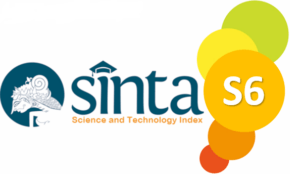PENGARUH MODELLING SIMBOLIS UNTUK MENINGKATKAN SELF EFFICACY KARIR SISWA KELAS IX CLC SMP TIMORA KAB. KINABATANGAN, SABAH MALAYSIA
Kata Kunci:
Career Self Efficacy, Symbolic ModelAbstrak
This study uses a quantitative approach with a quasi-experimental design and the sample of this study was 22 students which were divided into the experimental group and the control group, each of which consisted of 11 students. Withdrawal of samples with proportional random sampling technique. Data collection uses a career self-efficacy scale instrument and observation guidelines. Data analysis used descriptive statistical analysis and parametric analysis, namely the t test. The results showed that: 1) The level of students' career self-efficacy during the pretest was in the low category in the experimental and control groups. In the posttest, the career self-efficacy level of the experimental student group changed to the high category and the control group remained in the low category 2) The implementation of symbolic modeling techniques was carried out according to the procedures that had been designed through 3 sessions, namely 3) The use of symbolic modeling techniques had a significant effect on the career self-efficacy of CLC SMP Timora students.




